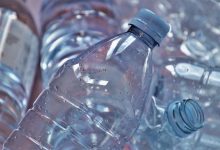Engineering professors and students at the University of California – Riverside have demonstrated a method they hope could “solve two of Earth’s biggest problems in one stroke” – recycling plastic waste such as plastic bottles into a nanomaterial useable in batteries.
As battery storage becomes an ever more present necessity – used in large-scale energy storage projects through to electric vehicles – sourcing materials traditionally necessary to make batteries are straining, and more sustainable alternatives are necessary.
Two engineering professors at the University of California Riverside, Mihri and Cengiz Ozkan, have been working with their students to create improved energy storage materials from a range of sources, trying everything from glass bottles to beach sand, Silly Putty to portabello mushrooms.
Their latest effort, however, has the ground-breaking potential to address not only the need for sustainable battery materials but also the need to recycle and eliminate tonnes of plastic waste.
“Thirty percent of the global car fleet is expected to be electric by 2040, and high cost of raw battery materials is a challenge,” said Mihri Ozkan, a professor of electrical engineering in UCR’s Marlan and Rosemary Bourns College of Engineering.
“Using waste from landfill and upcycling plastic bottles could lower the total cost of batteries while making the battery production sustainable on top of eliminating plastic pollution worldwide.”
The researchers demonstrate their most recent findings in an open-access article published in the journal Energy Storage which describes a sustainable and straightforward process for upcycling polyethylene terephthalate plastic waste, or PET – which is contained in plastic bottles and many other consumer products – into a porous carbon nanostructure which can be turned into a double-later supercapacitor within a coin-cell type format.
When tested, the resulting material contained multiple characteristics which, though they don’t store as much energy as lithium-ion batteries, are able to charge must faster, making them suitable for a variety of applications.
The UC Riverside team hope to further expand their research and fine-tune their results to create a final material with improved electrical properties.
“At UCR, we have taken the first steps toward recycling plastic waste into a rechargeable energy storage device," said doctoral student and first author Arash Mirjalili.
“We believe that this work has environmental and economic advantages and our approach can present opportunities for future research and development.”
“The upcycling of PET plastic waste for energy storage applications could be considered the holy grail for green manufacturing of electrode materials from sustainable waste sources,” added mechanical engineering professor Cengiz Ozkan.
This demonstration of a new class of electrodes in the making of supercapacitors will be followed by a new generation of Li-ion batteries in the future, so stay tuned.”








